DYLAN GAUTHIER & KENDRA SULLIVAN: Self-directed Residency, 2016
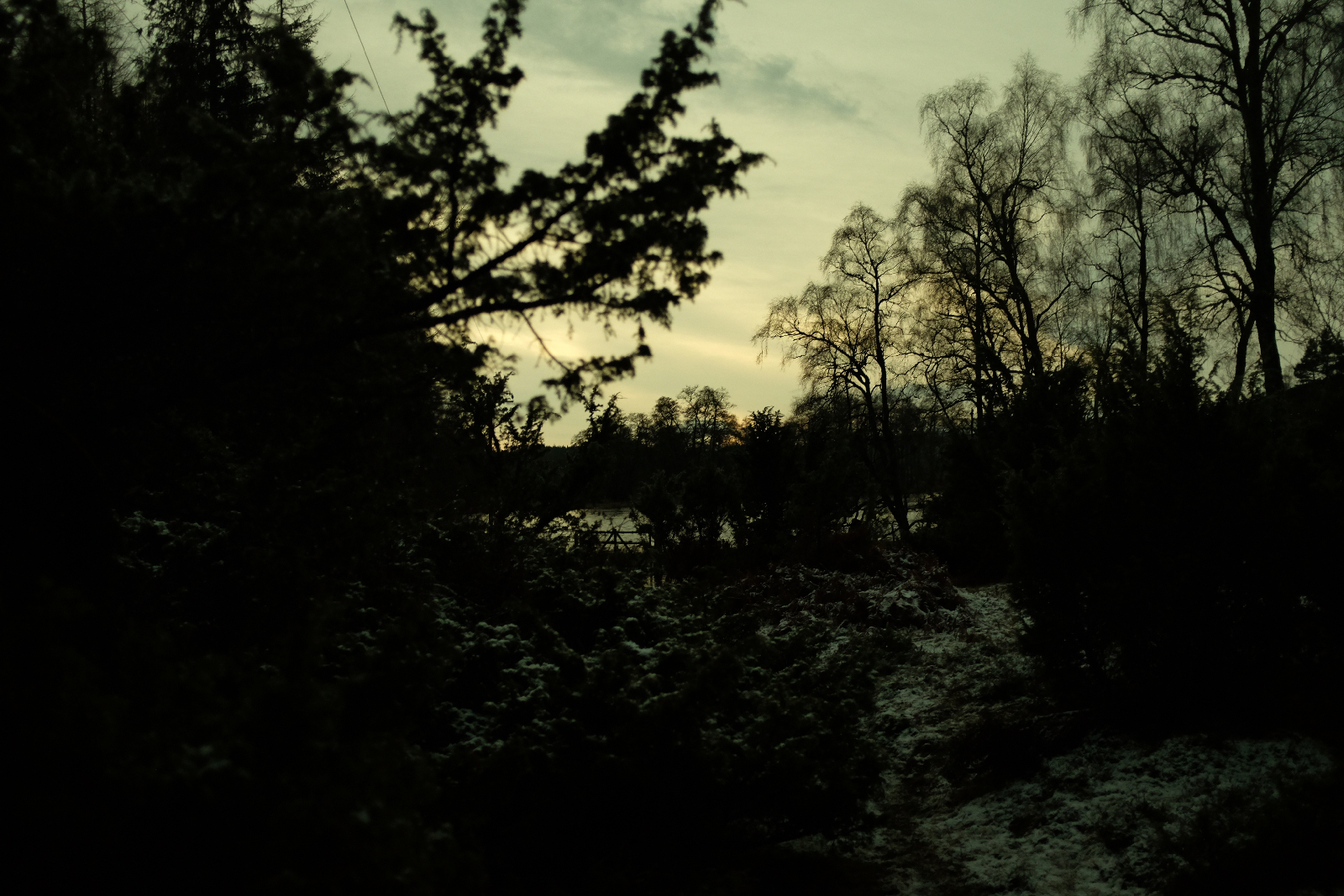
“Then the rain came down, and the broken stalks/ Were bent and tangled across the walks;/ And the leafless network of parasite bowers/ Massed into ruin; and all sweet flowers.” ~ Percy Bysshe Shelley. ‘The Sensitive Plant’ (1820).
Sunday
It’s been raining for several days already, and the clouded sky has meant no power since we got here. We stalk the solar inverter – flipping it off for a while whenever the sky brightens, then back on. It hums for a minute or two, then an alarm sounds, then we turn it off again. We are in the bothy in Inshriach. The space leads me to think of a “sympathetic architecture,” like a crook in a tree branch that provides a perfect support for you to lean into. The small cabin is well equipped in this regard, and full of nooks you can lean against for support. We’ve brought too much food, and there was food here to begin with. It seems to have been designed with the measure of a single human body as its template.
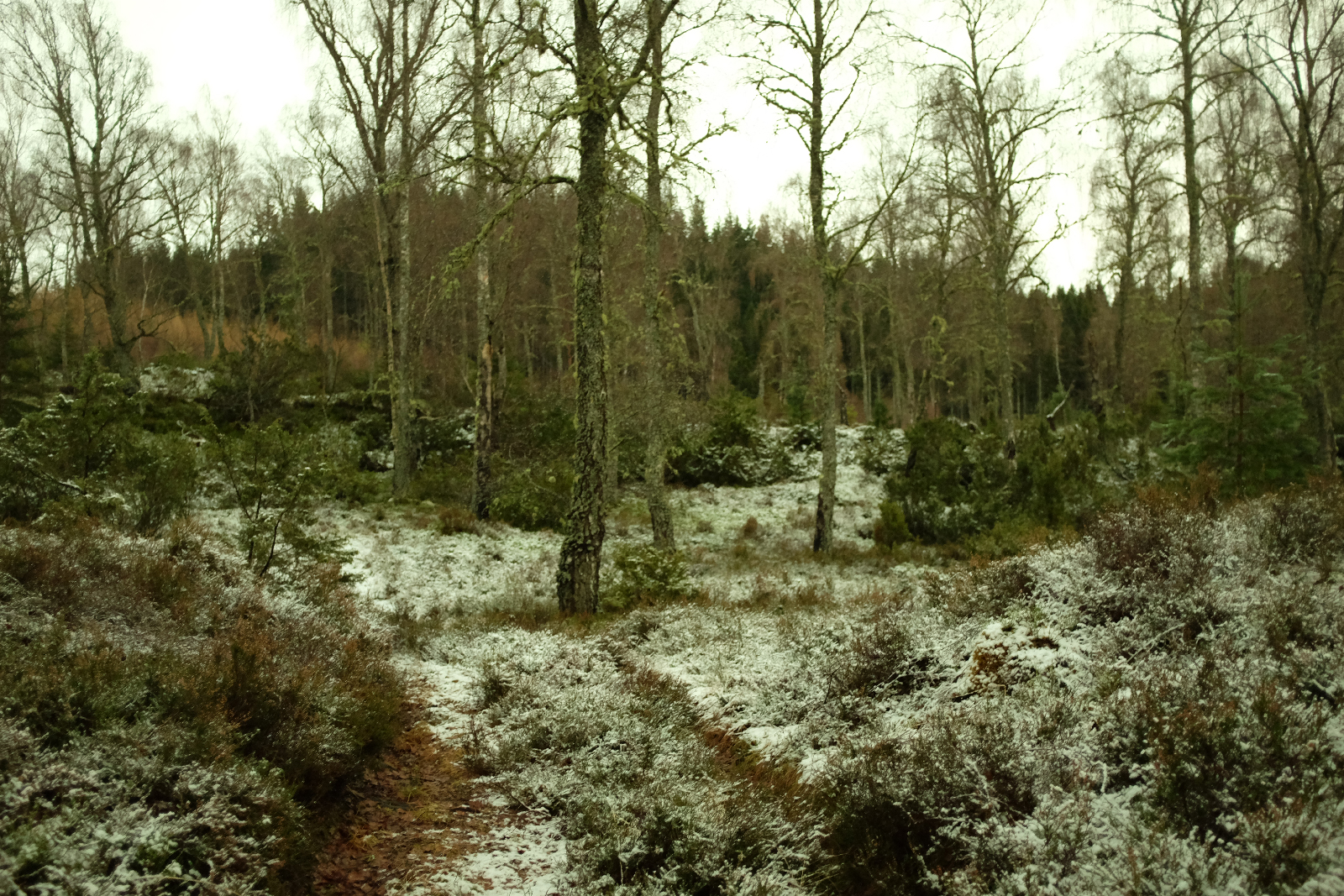
Overnight the rain turns to frost and in the mornings we crunch across the path to the chilly outhouse, open at one side and facing out toward the forested part of the property. The wood stove is a slow cooker unless you’re willing to fill it with so much wood the air in the cabin becomes almost intolerably hot. Cooking with the front door open in the middle of winter. Boiling water for tea takes almost an hour until we figure out a short cut, putting a small pot directly in the hot coals. You have to get up before the sun here, which isn’t hard since it rises toward 10 am, even with our jetlag which will last the whole time we’re here on account of the barely any daylight. The sun sets again toward 3 pm, and in that five-hour window there is much to do. There is preparing a meal, taking stock of the wood pile, chopping wood, straightening up in the cabin where in the darkness each night things tend to get jumbled and lost in the corners, some irretrievably, it seems. The ambiance of the forest outside is Shelley-an, still, our direct neighbors a family of sheep that wander a large expanse of fields beside the Spey.
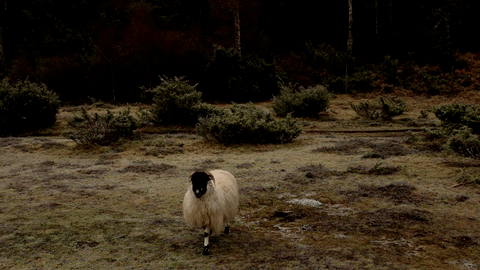
Monday
Without power, we have to forego our technology – writing on paper in shorthand to save our light-time, reading the few books we brought by candle or the couple left in the bothy (especially this one). And so really our technology consists only of candles, an axe, a stove. We drive the car to a hike around a nearby lake with a castle we can imagine Shelley or Byron living in so we can charge our cellphones.
The writers Timothy Morton and Maureen McLane have expounded on Shelley as a proto-environmentalist, whose language comes in direct contact with landscape in a moment when the Industrial Revolution is already showing its impacts. Shelley’s writing, in that sense, mirrors the American transcendentalists, or the Hudson River School of painting. Visions from a vanishing wilderness. Here, the poet’s concern for nature, the animal, and the inanimate, is an aspect of or a compliment to a life of charged political radicalism. As Morton notes, the poet wrote about pollution in 1813: ‘the putrid atmosphere of crowded cities; the exhalations of chemical processes.’” Shelley’s proto-ecology is a precursor of a modern response to capitalism’s ravages and feels notably prescient today.
Morton Writes: “Prometheus Unbound’s latent Spinozism provides a way of thinking of technology not as inherently evil but as perverted good. This is consistent with the speech in Act m about the rise and fall of Prometheus: technology is a two-edged sword, bringing fire, health and language but also disease and disfiguration. The drama is about redeeming technology, about hoping that the sword may be refashioned with only one edge. The machine of light that cuts into the earth is a kind of one-edged sword, a version of science fiction’s laser beam. It is metaphorically associated with the progress of liberty, cutting up and decoding the dead matter of the past.” (See: Shelley’s Green Desert)
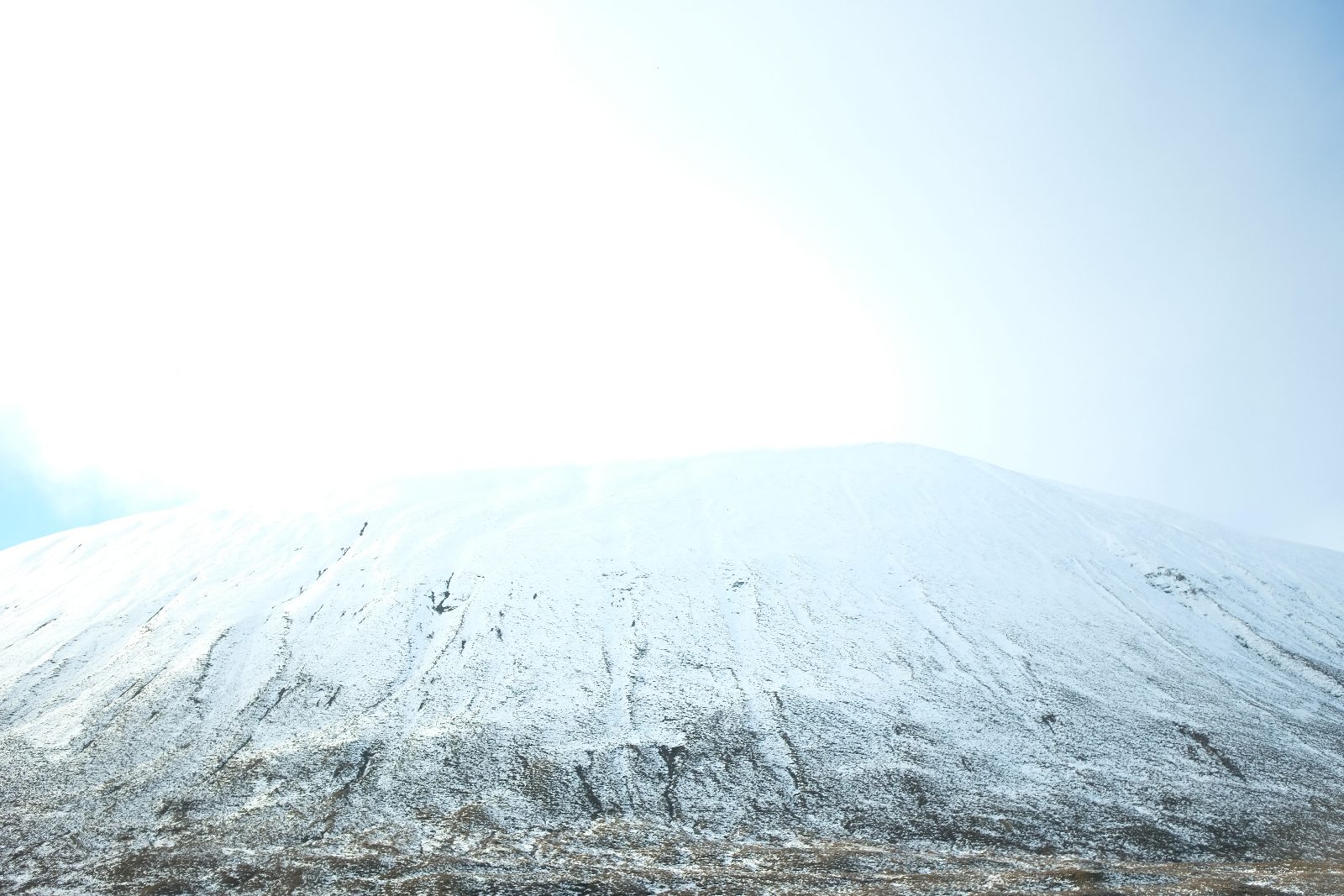
Tuesday
Taking stock this morning, the Spey has risen 9 meters overnight. We could hear its throaty rushing before the sun came up and we had to remind ourselves in the night that there was no way it could reach us up here on the hill in the Bothy. Still, 9 meters is a substantial amount of water where yesterday there was none. There are trees sticking up through the river’s muddy surface. We worry about the sheep – what about the one stuck on the other side of the fence last night? I’ve been keeping a daily inventory of everything we consume. This eats up more of our daylight, so I shift and this becomes an “after dark” activity, one that now has to happen by candle light, from memory. There are five candle lanterns which together offer enough light that you don’t smash your head against the loft, ladder, bookshelf. Even with such a limited pantry it’s hard to remember every detail – three cloves of garlic, five, no seven clementines. How many candles did we burn this morning? This basic existence belies the complexity of the technology that brought us here – a flight over the Atlantic, a train up to Edinburgh, a car from there.
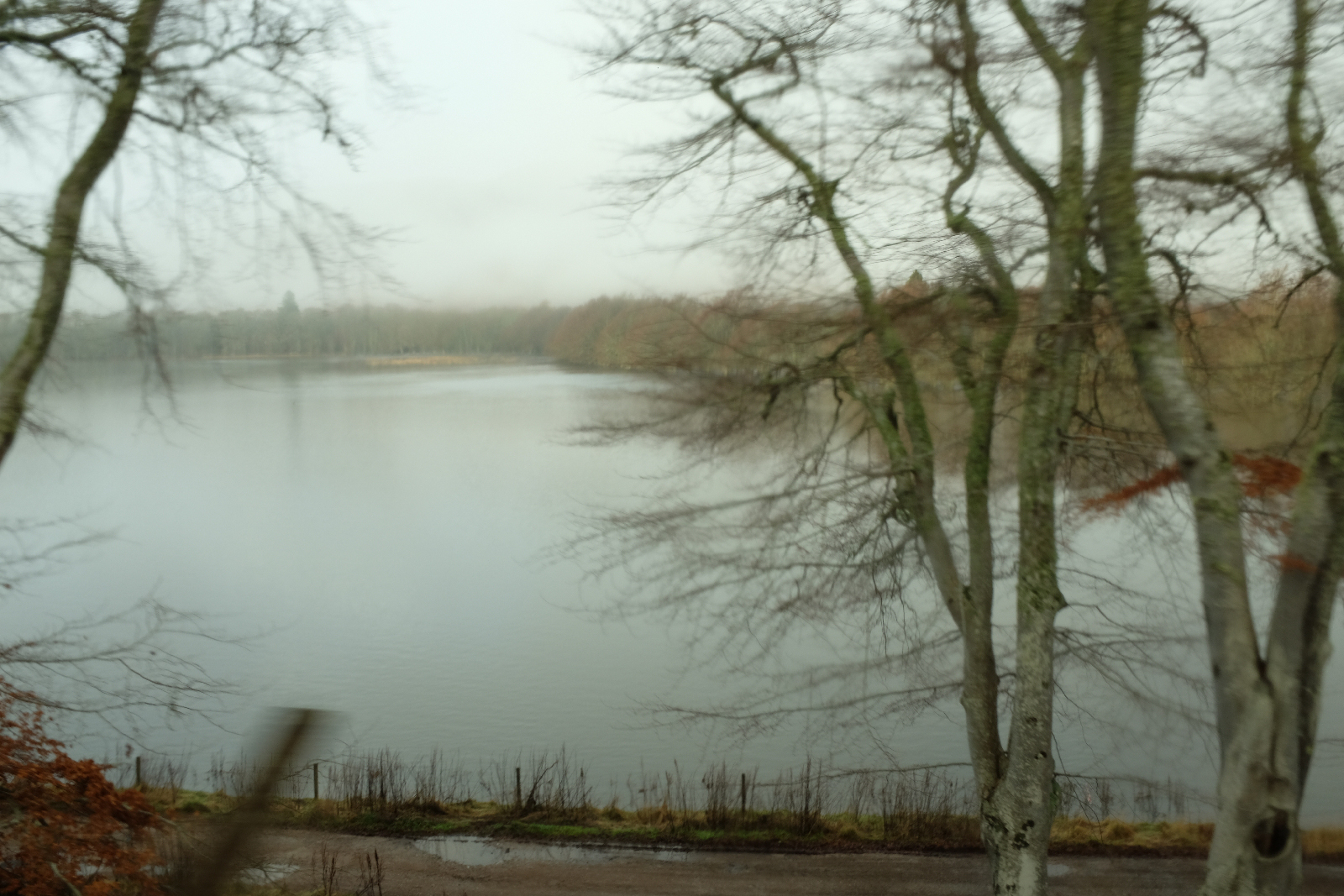
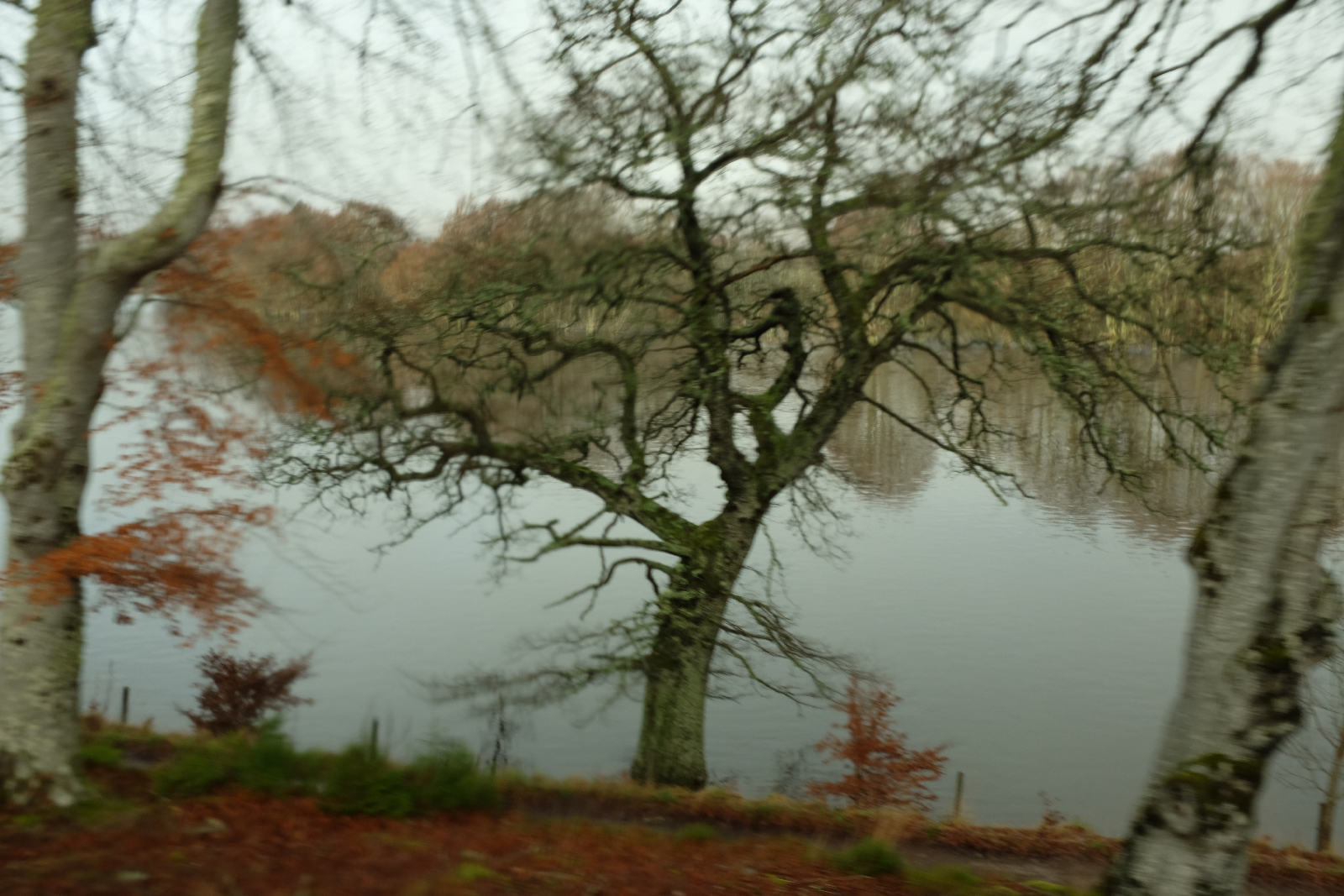
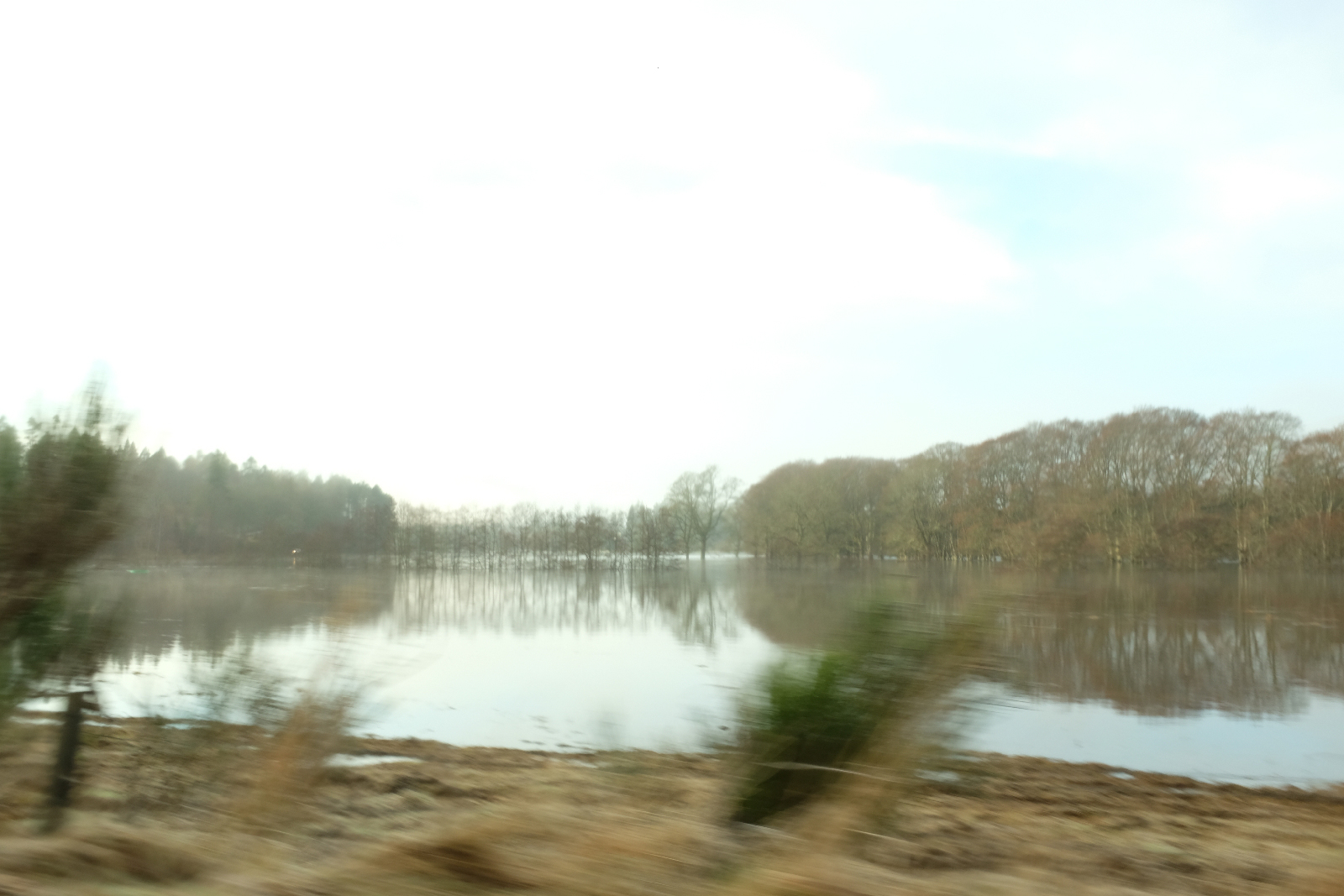
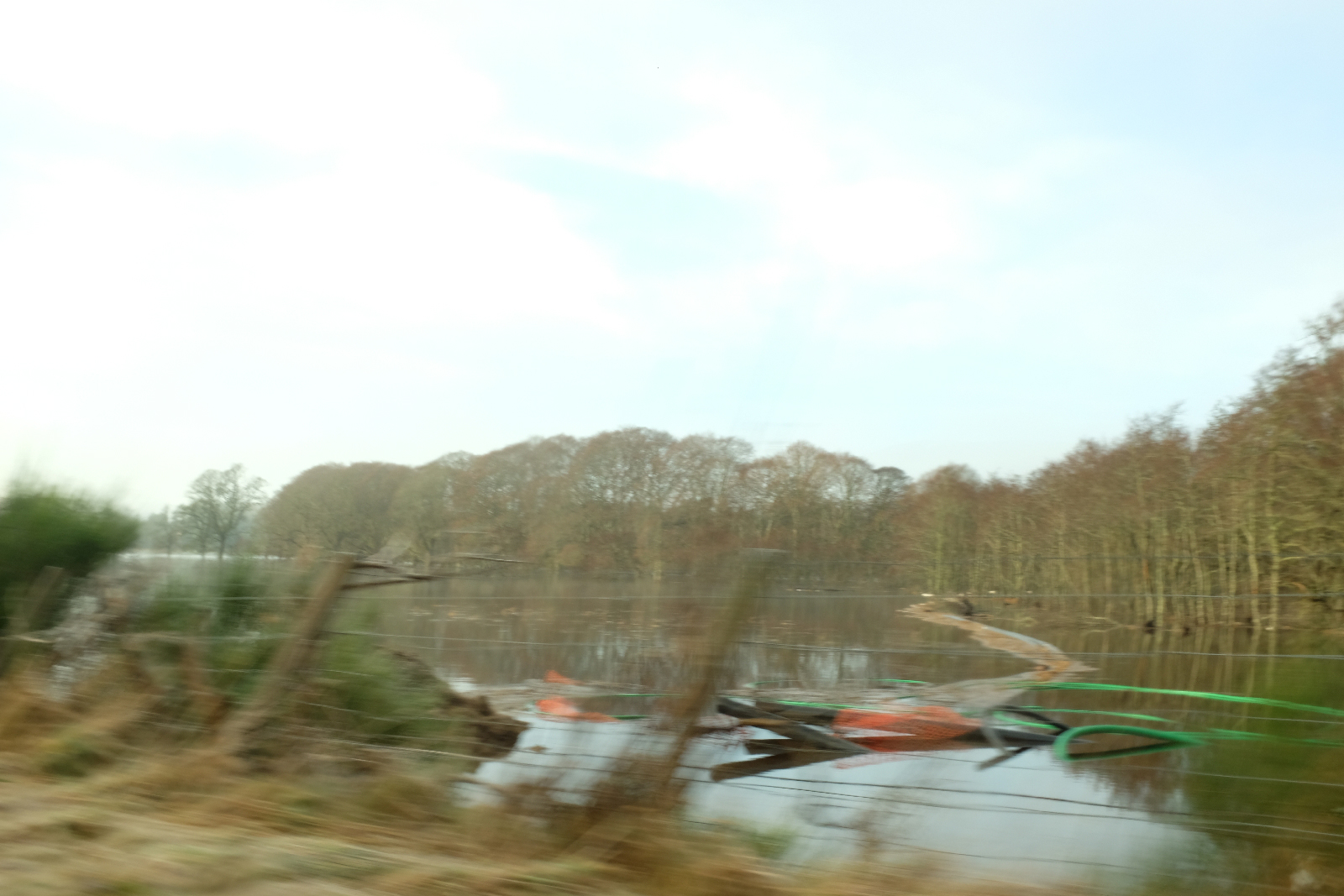
Outside of the inventorying, I’m trying to write about Shelley in the woods. The operative elements are anarchism and environmentalism, or – given that the second didn’t exactly exist yet in his time, his ’environmental sensitivity.’
I am reading from a passage in Edward J Trelawny’s Recollections of the Last Days of Shelley and Byron. In it, Trelawny (“Tre”) finds Shelley in the woods, huddled beneath a fallen bough, pages of poetry and books scattered on the ground before him, glazed over in contemplation of his work.
Notes for a film script about Shelley and Byron (d’après Trelawny)
The old man picking up pine cones. Tre asks him if he has seen a stranger. “L’Inglese. malincolico haunts the wood maledetta. I will show you his nest.”
As the two advance the ground swells to ‘mounds and hollows’. The old man points to a brackish pool of water with his stick. Beside the pool, a stick, a hat, books, loose papers fluttering and being carried off by the wind. The pool again, boiling in the Italian summer heat. The camera pans across a fallen pine. Beneath the bough sits the Poet “gazing on the dark mirror beneath.” Shelley does not hear Tre approach. Tre stoops to examine the Poet’s books. Sophocles, Shelley’s favorite Greek dramatist.
Shelley: “Hollo. Come in.”
Tre: “Is this your study?”
Shelley: “Yes. And these trees are my books,” [he pauses, then adds, childishly,] “They tell no lies. You are sitting on the stool of inspiration. In those three pines the weird sisters are imprisoned, and this [pointing at the water] is their cauldron of black broth. The Pythian priestesses uttered their oracles from below – now they are muttered from above. Listen to the solemn music in the pine-tops – don’t you hear the mournful murmurings of the sea? Sometimes they rave and roar, shriek and howl, like a rabble of priests. In a tempest, when a ship sinks, they catch the despairing groans of the drowning mariners. Their chorus is the eternal wailing of wretched men.”
Tre: “They, like the world, seem to take no note of wretched women. The sighs and wailing you talk about are not those of wretched men afar off, but are breathed by a woman near at hand – not from the pine-tops, but by a forsake lady.”
Shelley: “What do you mean?”
Tre: “An hr. ago I met your wife, Mary, at the entrance of this grove, in despair at not finding you.”
Shelley stands up, snatches his scattered books and papers, thrusts them into his hat and jacket pockets, dances across the top of the tree trunk and swoops up three pages that have landed on the black pond, with a half-clumsy, half-nimble gesture that gives the impression he will most certainly fall into the dark and brackish water below.
He shouts: “Poor Mary! Come along; she can’t bear solitude, nor I society – the quick coupled with the dead.”
Mary comes out of the wood, hearing the voices of her two passing friends. “… & … & … &”
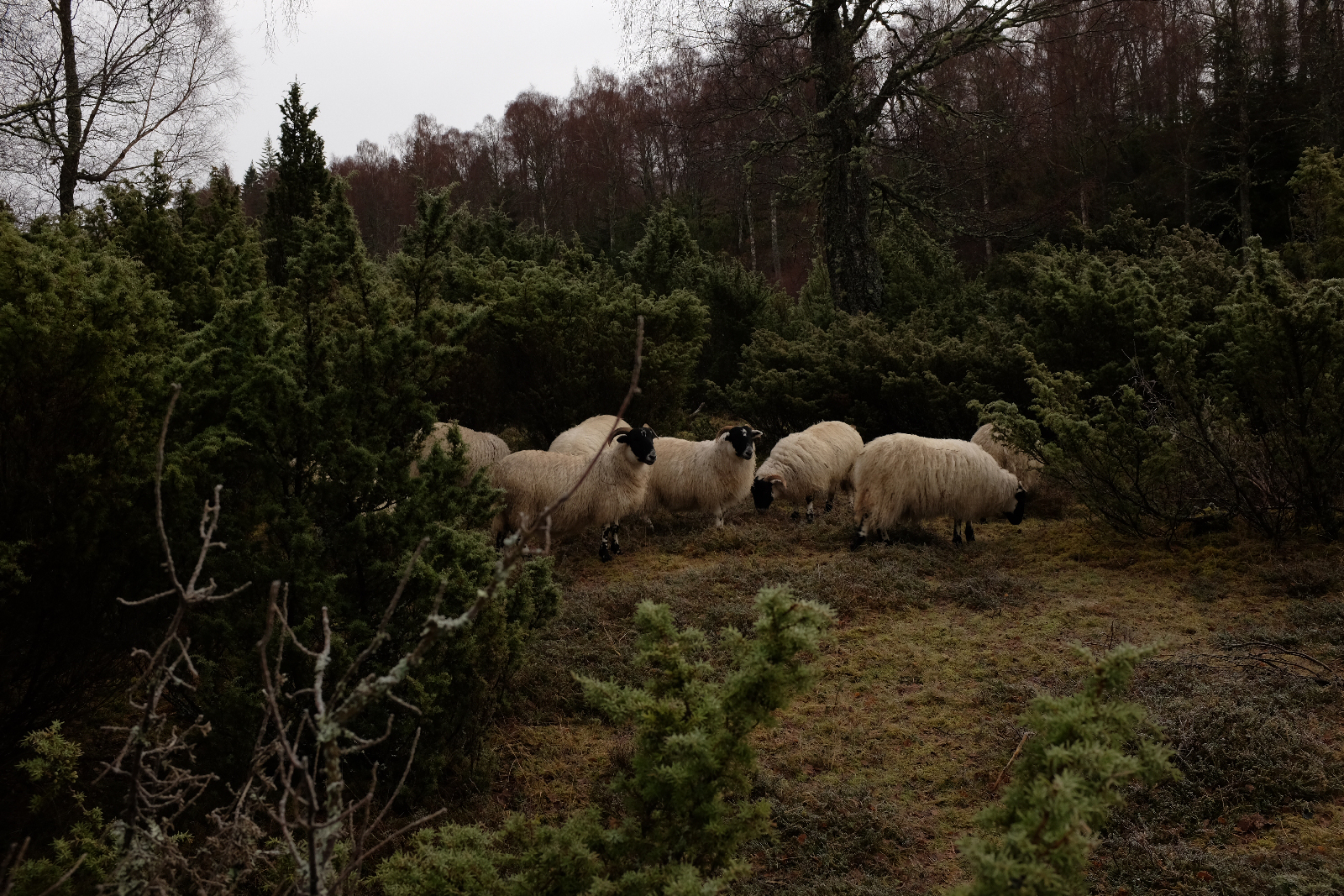
The three run off through the woods, dancing and laughing. They pass three peasant girls washing in the pond. The old man with the donkey. The donkey gives the three friends a sour look, figuring them all for lunatics. Shelley’s drops a page of his scrawlings and the camera pans in: “Ariel to Miranda take / This slave of music.”
Cut to the river. Shelley’s VO:
“When my brain gets heated with thought, it soon boils, and throws off images and words faster than I can skim them off. In the morning, when cooled down, out of the rude sketch as you justly call it, I shall attempt a drawing. If you ask me why I publish what few or none will care to read. It is that the spirits I have raised haunt me until they are sent to the devil of a printer. All authors are anxious to breach their bantlings.”]
(See: The Poets of Scotland and Musings Under Beeches.)
Wednesday
This morning we are told this is the worst flooding anybody can remember, at least since four months ago which was the worst flooding since four months before that, etc. Every flood breaks some new record. We are told it usually floods in April, but never in December. The water has come up into a neighbor’s field. Tragically, we are told that a kayaker has been lost in the flood this morning. The dark sky continues to pour rain down into the valley, and the top of the hill seems less comfy, less isolated. In the rain, and without much daylight, time seems to be flowing backwards.
We spend our few daylight hours walking the dry edges of the property, checking in on sheep, taking video of the swollen and flooded Spey. At night the winds are blowing so hard they shake the cabin and we’re sure there’s a new crack in the plaster right beneath the roof line. It occurs to us how trapped we are in a circular logic of being artist-writers who focus on environmental themes. You can’t escape it. You can go basically anywhere these days to experience climate change. This is like the logical loop that Morton writes about.
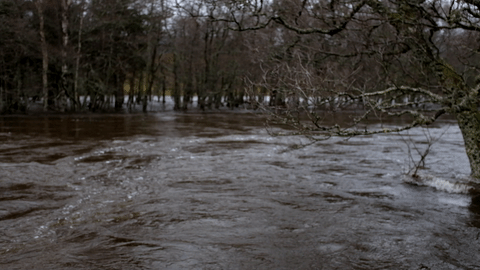
A new friend in London tells us how our cultural imaginary associated with climate change is shifting. As recently as a couple of years ago it was all about depicting glaciers, capturing them mid-melt, calving, or the errant icebergs, sea ice adrift. Today the thought-image on climate change is of islands being swallowed up by the sea, or else evacuated, neighborhoods, towns, or even entire nations moving to higher ground, like the small nation of Kiribati that has recently purchased land in a neighboring nation and is planning a full-scale retreat. We are told that Scotland is a rainy country, but nobody can downplay that the past few years have brought more rain than the country’s rivers and streams can hold.
“In England, the sky is Black.” Byron. Here, it is green, blue, mossy, sea-teal, but the river is dark.
A river presents a challenge. It is always altered. Rivers flood seasonally, change themselves entirely over the course of the year, so it is hard to visually depict how altered weather patterns affect them. The displacement of seasons is equally hard to pictorialize. Winter acts as spring “used to,” but how to show this? We head to town to stock up on wine and soup and on our way back workmen are putting out new “road flooded” signs along the low road.
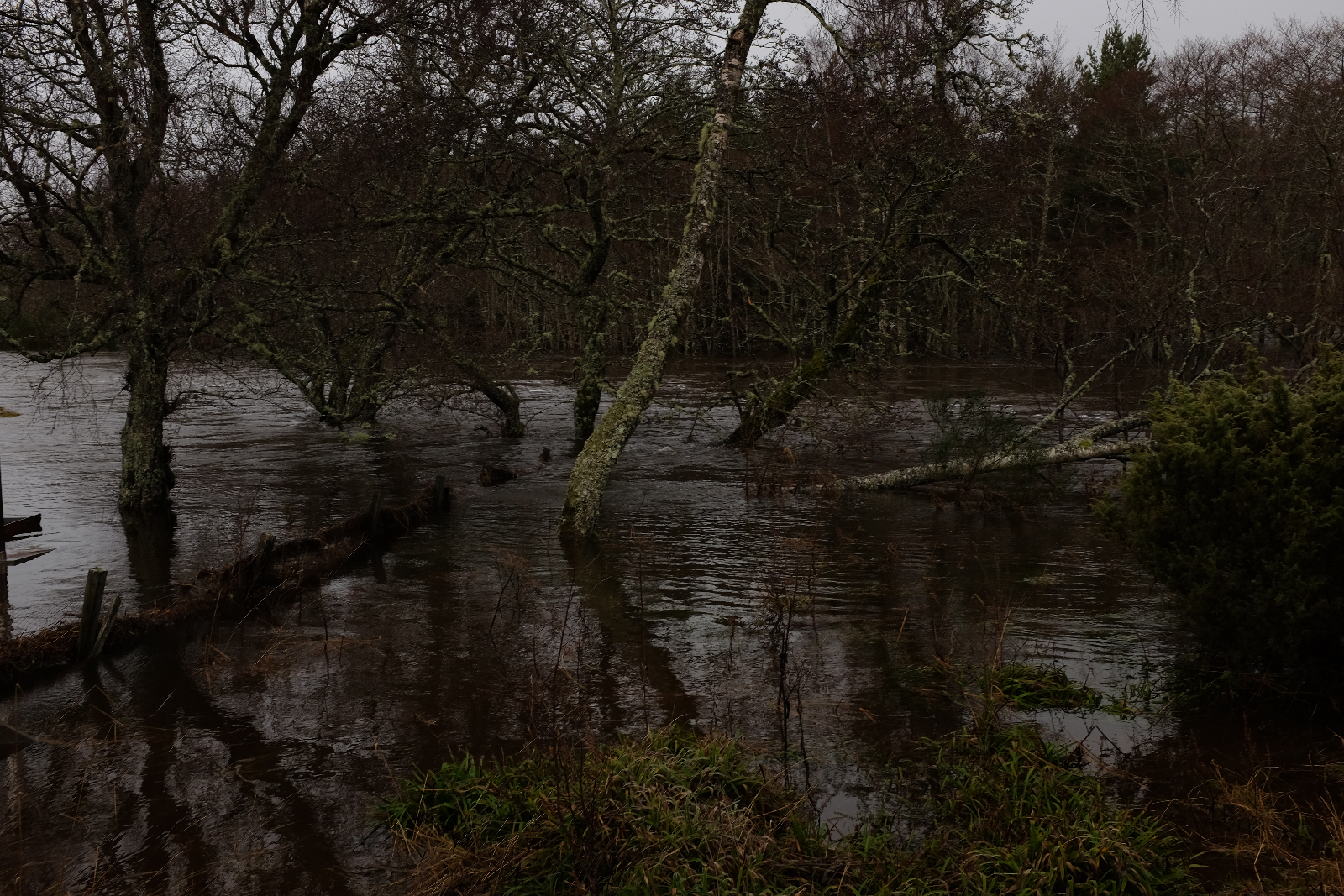
Tuesday
The rain has subsided and and it won’t rain again until after the New Year. The Spey begins to retreat out of the fields and back into its well-worn path. Downriver, a bridge has been washed out. The old Inn that used to host the Ceilidh has flooded again – the Ceilidh will be moved this year for the second time. Northern England is still receiving rain and parts are under water. Our train – actually the entire West Coast train network – is cancelled. We will have to take the East Coast line several days from now and even then it will still be raining in Northern England. Everyone says it’s a rainy country, but rainy country or no, this is too much rain. Conversely, at home, in California, the drought feels permanent. I realized a few years back that I couldn’t remember when there wasn’t drought. People still talk about the drought as if it’s transient rather than a permanently altered state of living.
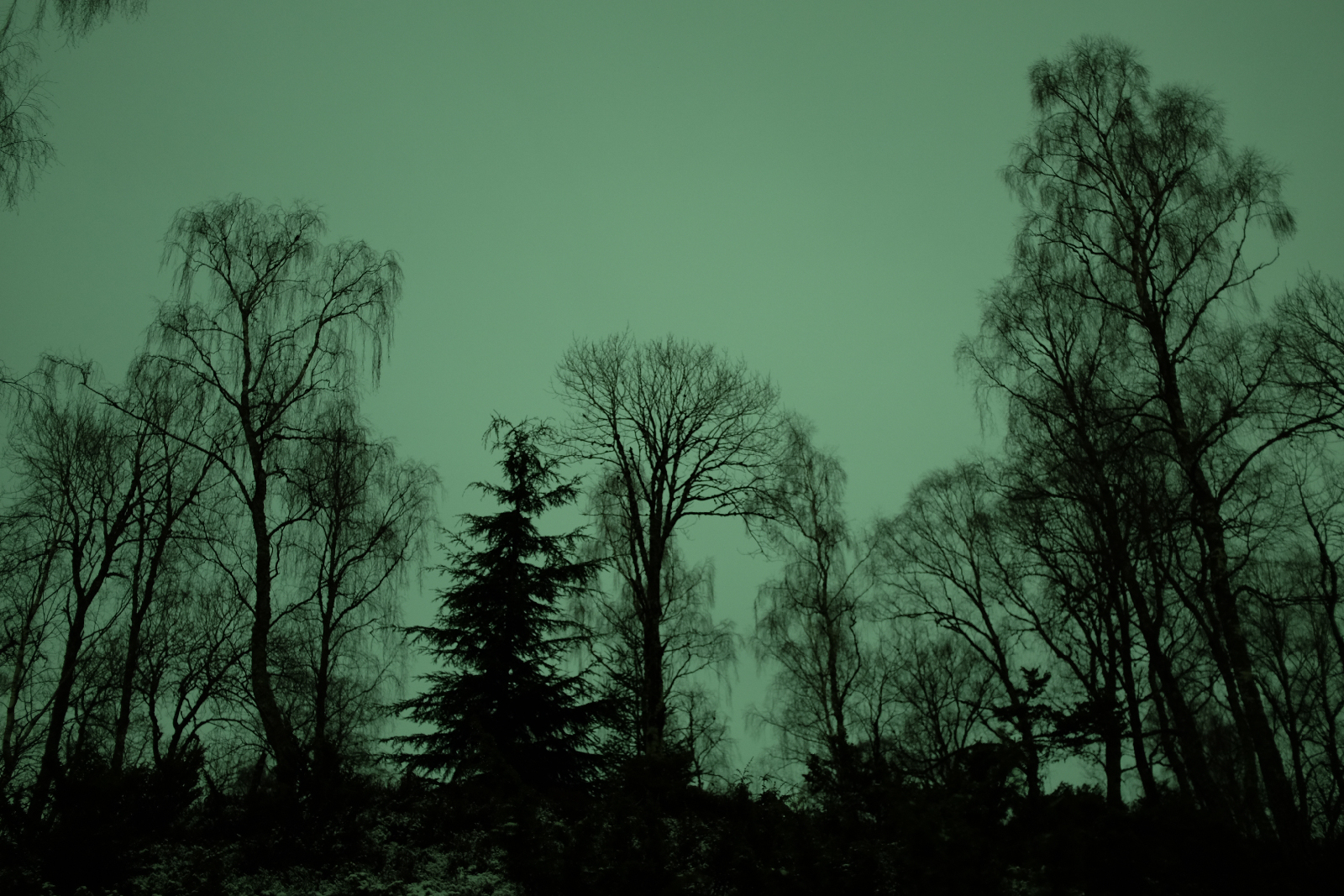
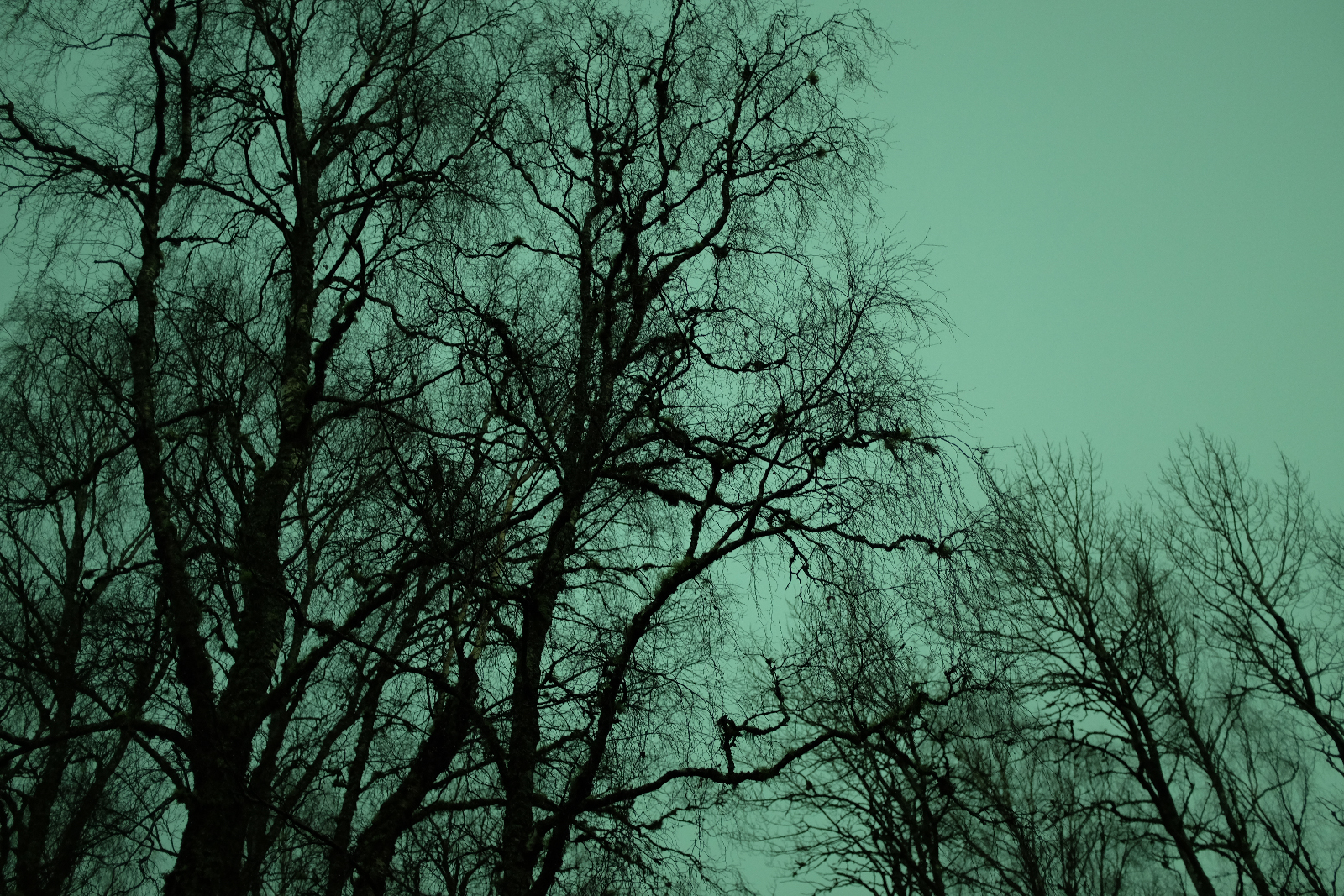
The bothy is warm from the cooking fire, and at night the sky clears enough to see the stars. One of our friends who has come to stay and share the small cabin with us for the New Year’s Eve points out what may be the Northern Lights.
In the high winds of the previous night we retreated to town for an evening meal and to charge cameras and laptops. We stop at the inn just as a gust smashes through a perimeter fence, lifting the thing 20 feet through the air and bringing it down on a silver Audi. The front desk clerk asks sheepishly as we come out of the restaurant, “You’re not driving a silver Audi, are you?” “No.” We retreat from the inn just as the night’s trivia contest is about to begin.
The road is quiet, we take a chance and navigate around road closure signs, creeping slowly in case there is a flood that might sweep us away.
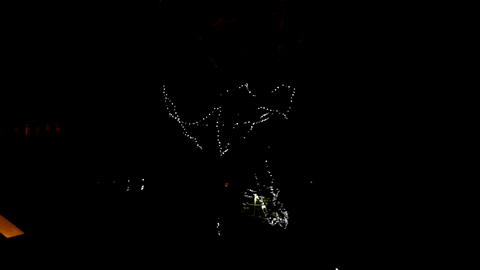
Monday
“I can only print my writings by stinting myself in food.” ~ Shelley.
Oat cakes (3).
Carrots (4).
Apples (2).
Rice (1 cup).
Crisps (1 bag).
Endive (3 heads).
Leeks (1).
Tomatoes (2).
Tangerines (4).
Eggs (4).
Cheddar cheese (4 oz).
Norwegian sardines (1 can).
Tea (6 cups).
Milk (2 cups).
Logs, large (12).
Cairngorm Wildcat (2).
Matches (6).
Candles (8).
Firelogs (1).
Newspaper (1).
Wine (2 bottles, red).
Sunday
“Our life is two-fold: Sleep hath its own world,
A boundary between the things misnamed Death and existence:
Sleep hath its own world, And a wide realm of wild reality.
And dreams in their development have breath, And tears, and tortures, and the touch of joy; They leave a weight upon our waking thoughts, They take a weight from off our waking toils, They do divide our being; they become
A portion of ourselves as of our time,
And look like heralds of eternity;
They pass like spirits of the past, – they speak Like Sibyls of the future: they have power – [I transcribed this in the dark as “poewr,” perhaps a poetic power?]
The tyranny of pleasure and of pain;
They make us what we were not – what they will, And shake us with the vision that’s gone by.
The dream of vanish’d shadows – Are they so? Is not the past all shadow? – What are they? Creations of the mind? – the mind can make Substance, and people planets of its own
With beings brighter than have been, and give
A breath to forms which can outlive all flesh.
I would recall a vision which I dream’d Perchance in sleep – for in itself a thought,
A slumbering thought, is capable of years,
And curdles a long life into one hour.”
~ Byron, The Dream
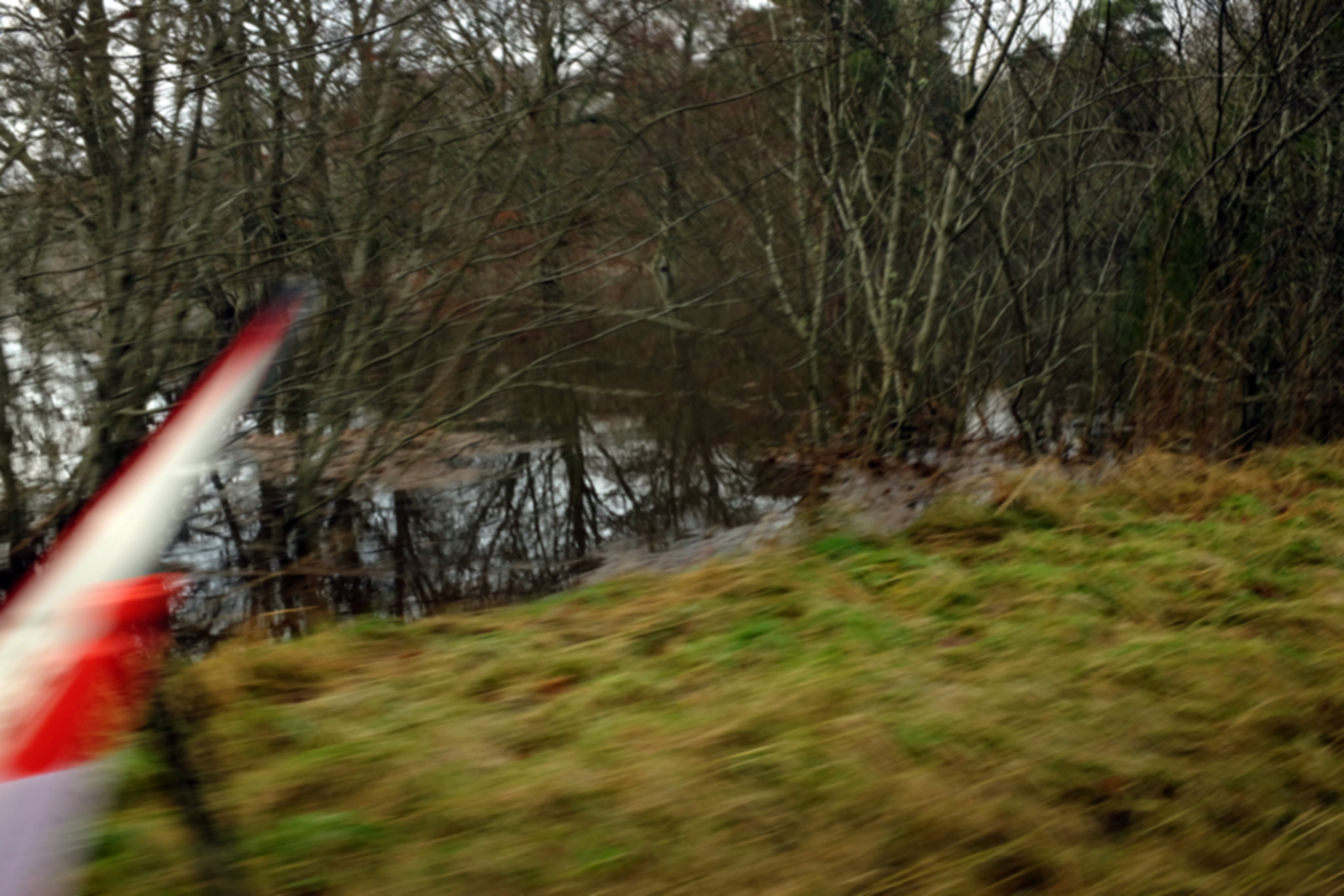
- Inshriach Bothy
- Self-Directed Residencies 2019-2020: SOFIE LEENEN, ANNIE LORD, LAURA DAVIDSON, MARI LAGERQUIST
- THIS WAY: William Grant Foundation Residency, 2019
- VICTORIA BEESLEY: William Grant Foundation Residency, 2019
- Royal Scottish Academy, Residencies for Scotland - Bruce Shaw 2019
- LUCY WAYMAN: Bothy Project x TOAST Residency, 2019
- search the blog
